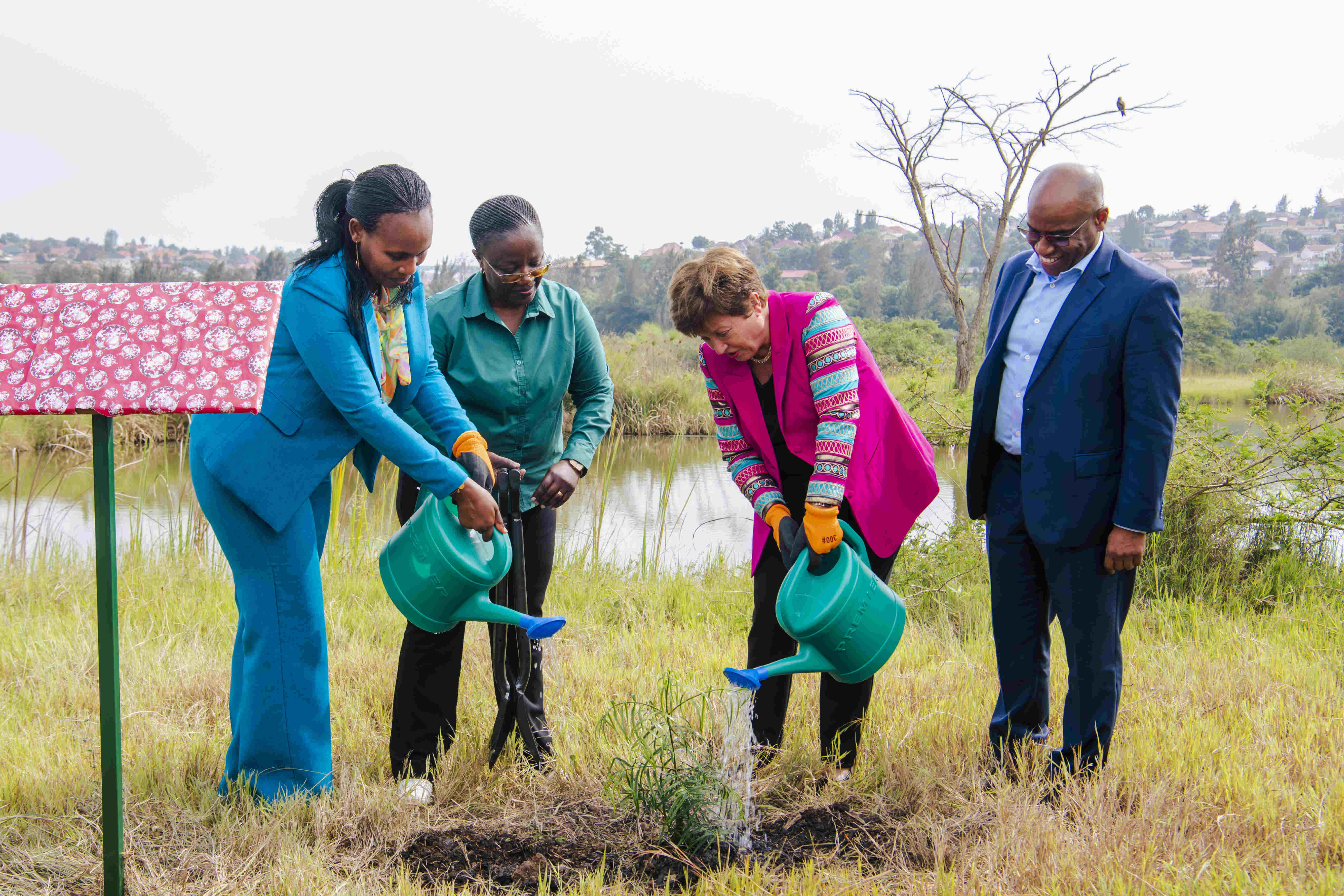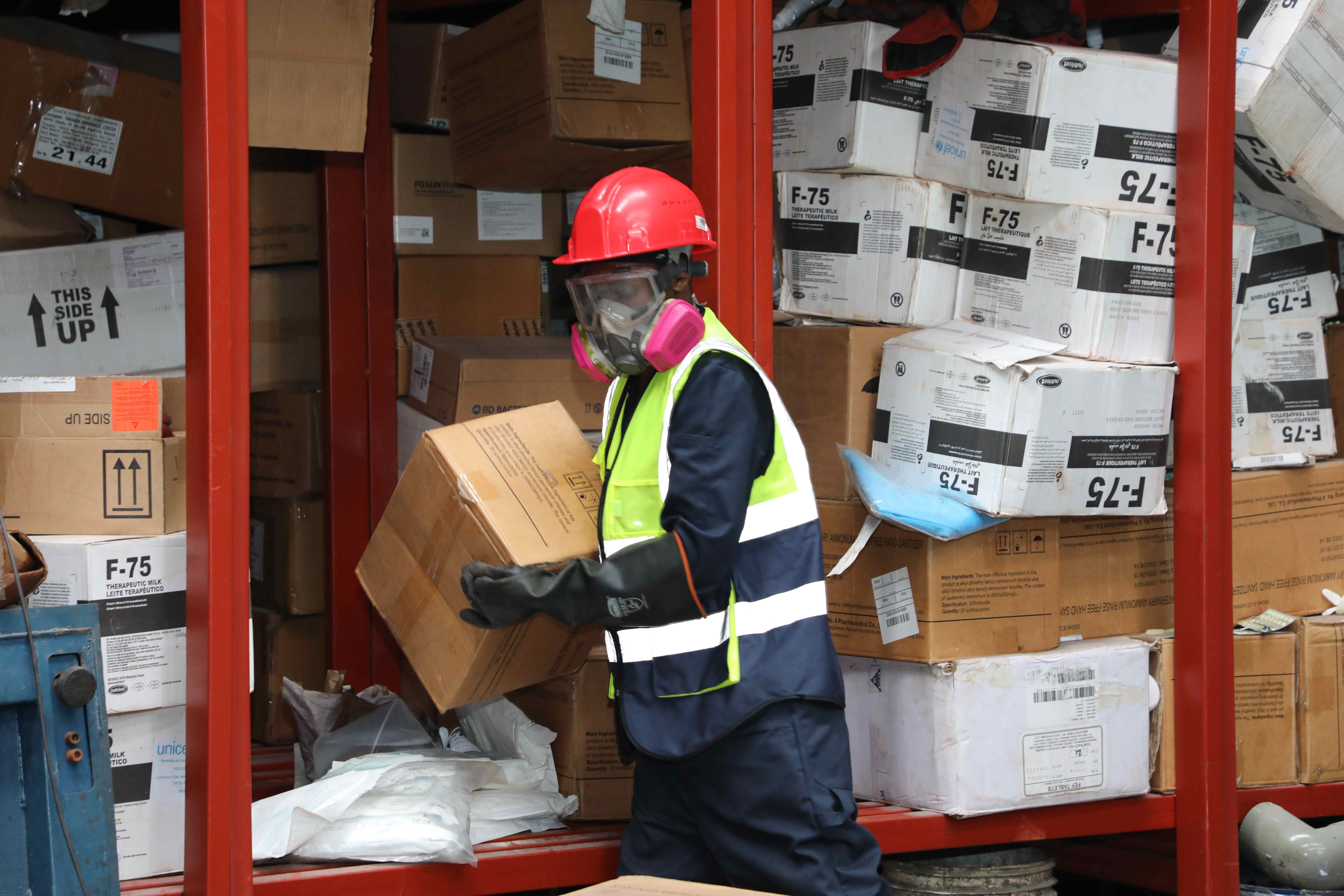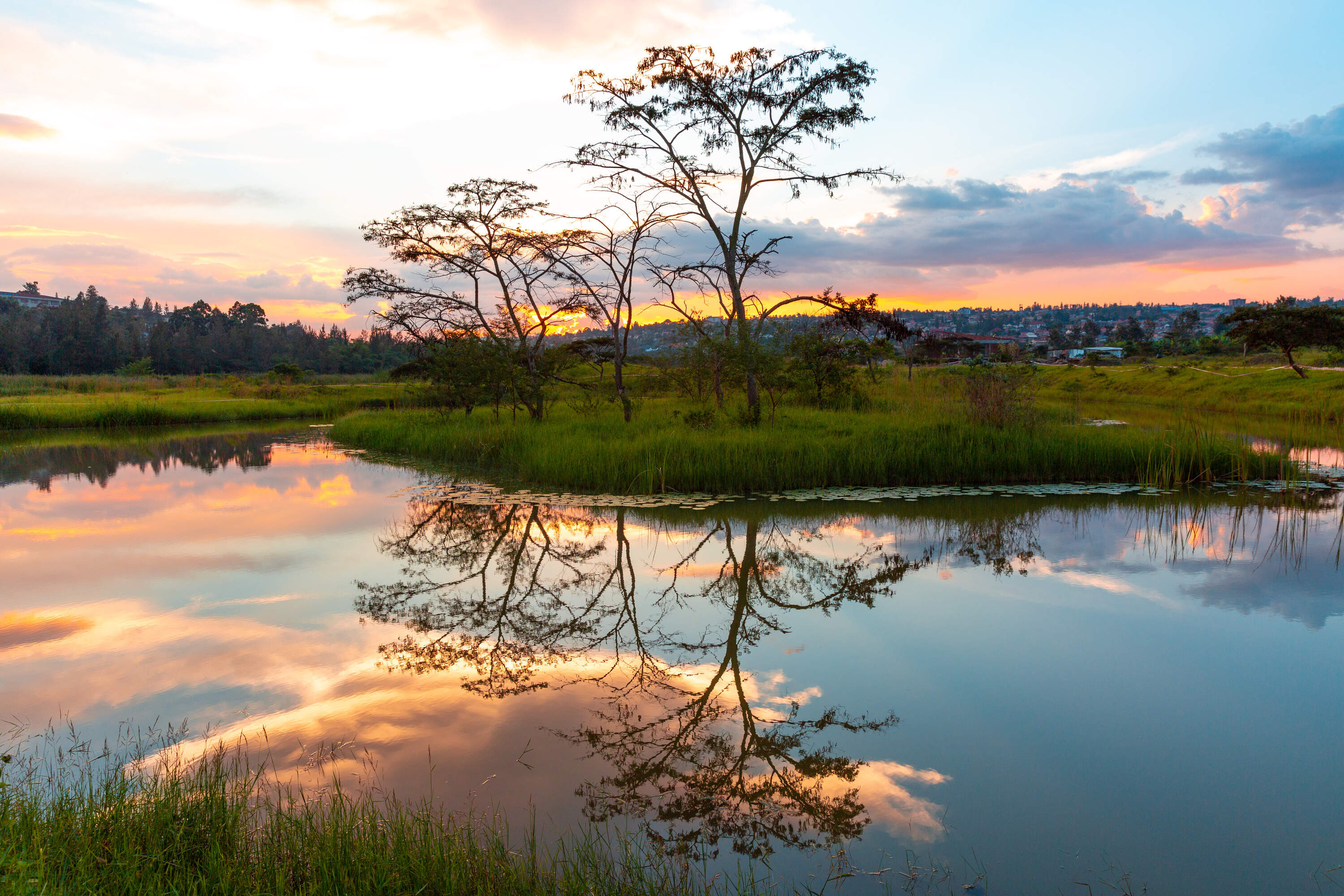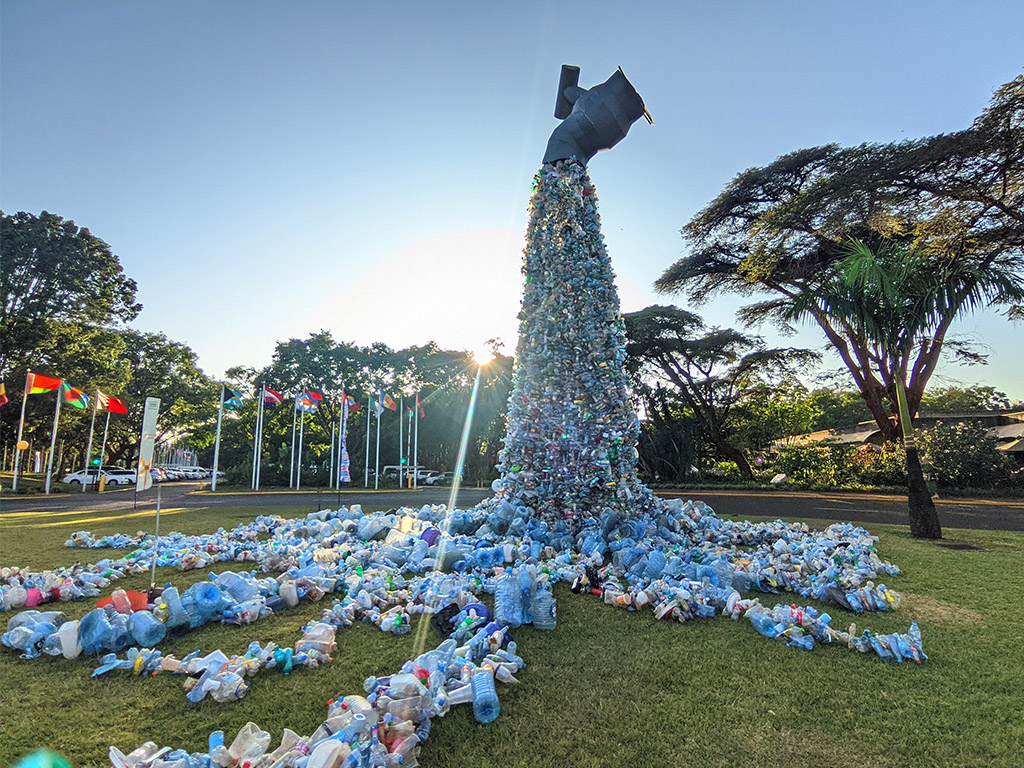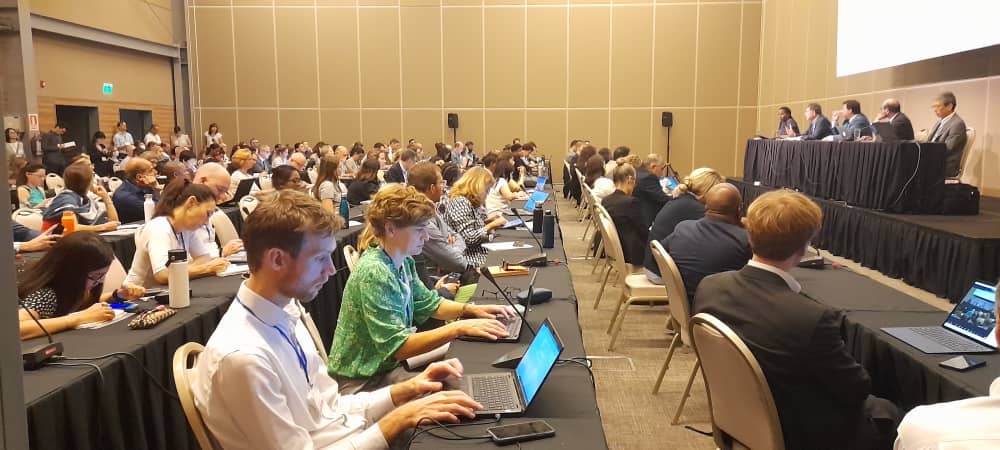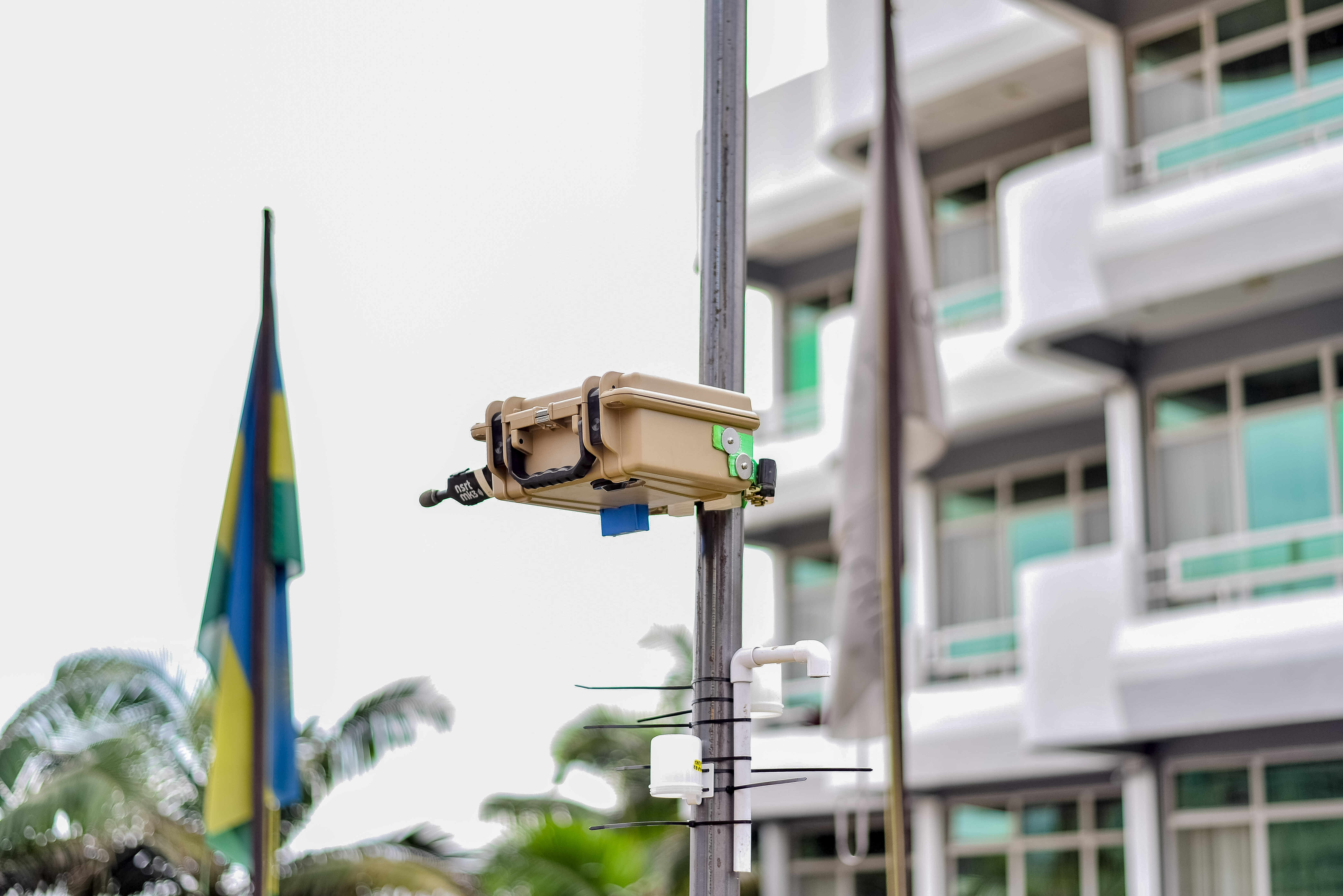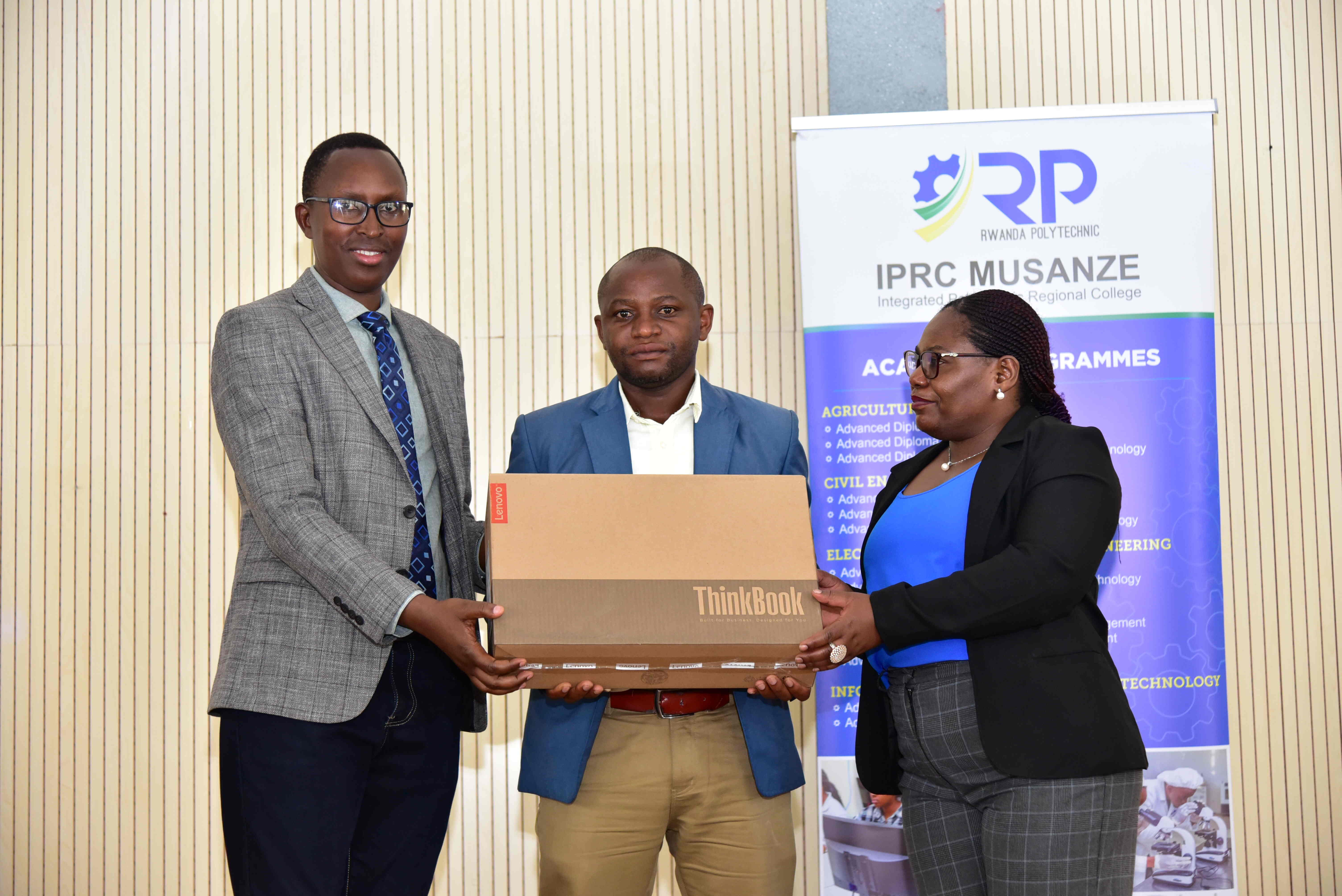
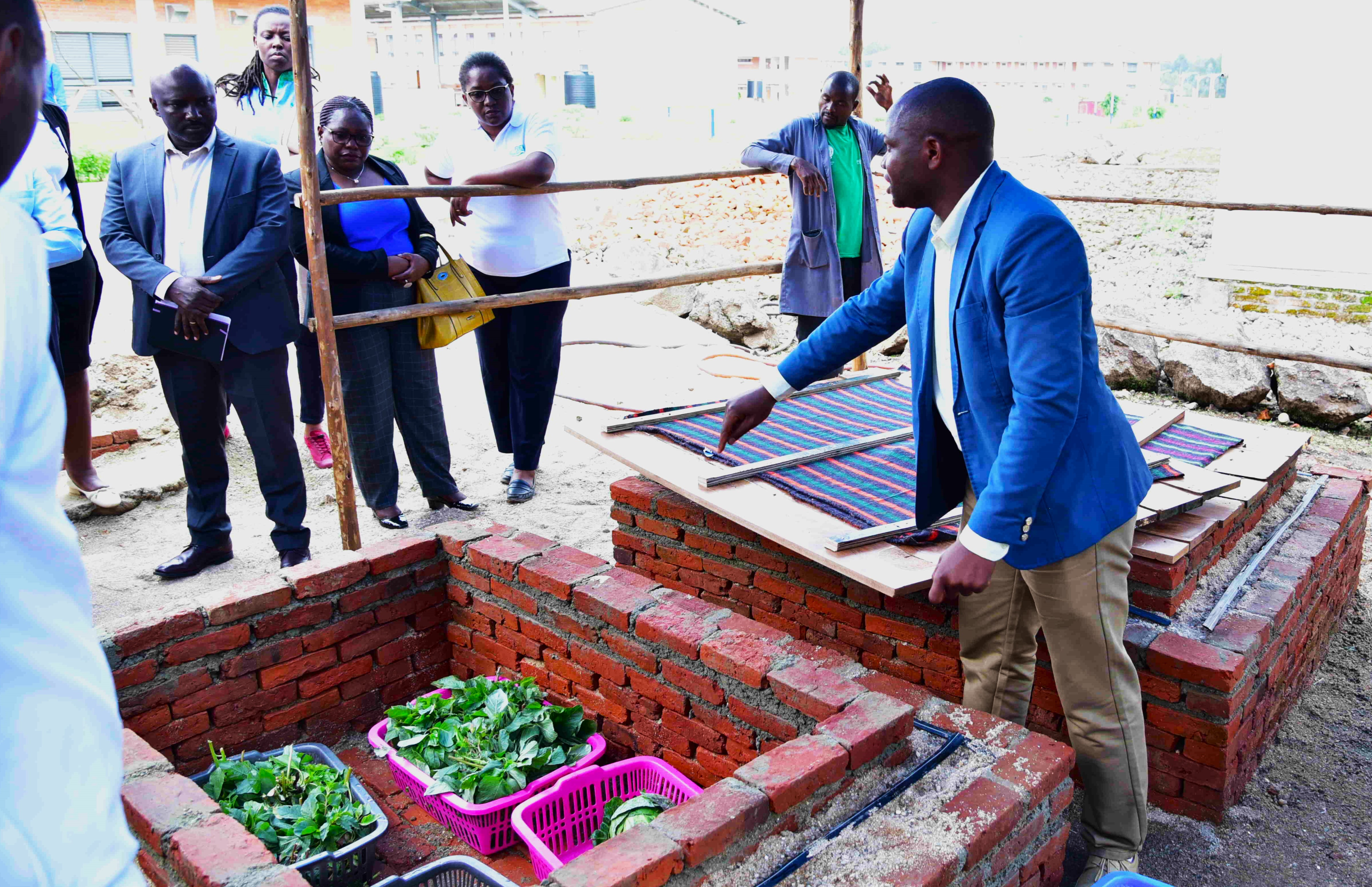
World Ozone Day: REMA recognizes students and lecturers with technologies and eco-friendly cooling solutions
Rwanda in September 2023 joined the rest of the world to mark the World Ozone Day with the theme “Montreal Protocol: Fixing the Ozone layer and mitigating Climate change”
This year’s theme emphasizes the vital role of the Montreal Protocol and its Kigali Amendment in not only protecting the Ozone layer but also mitigating climate change. World ozone day is celebrated annually on 16th September.
Rwanda celebrated Ozone Day on 18th September 2023 with students at Rwanda Polytechnic Institute of Science and Technology - Integrated Polytechnic Regional Centre (RP-IPRC) in Musanze, Northern Province, to encourage students to develop technologies and eco-friendly cooling solutions that could protect the Ozone layer from the Ozone Depleting Substances.
Students and lecturers at IPRC Musanze have developed affordable and eco-friendly cooling solutions designed to reduce food loss and mitigate climate change.
One of them is the “Zero Energy Cooling Chamber (ZECC) that functions similarly to a conventional refrigerator in the sense that the chamber ‘pushes’ heat out.
However, it is cheaper and has a higher energy efficiency than a typical fridge, as it requires no electrical energy whatsoever, just water to maintain function. The design consists of an inner chamber, a surrounding layer of wet sand, and another wall encasing it.
Zero Energy Cool Chambers stay 10-15° C cooler than the outside temperature and maintain about 90 per cent relative humidity, according to the International Journal of Engineering Research & Technology.
The United Nations Environment Program (UNEP) noted that collection of human-made greenhouse gases known as ozone-depleting substances (ODSs), including chlorofluorocarbons found in industrial products like air conditioners and refrigerators, destruct the ozone layer— a layer of gas high up in the atmosphere that helps protect us from the sun’s harmful ultraviolet (UV) rays—leading to skin cancer and weak immune systems, among other issues.
This makes the ZECC a better option as it does not produce or release any greenhouse gases.
Martine Uwera, the Programme Manager for Environment Mainstreaming and Biodiversity Management and National Focal Point of Montreal Protocol, said the new technology is both inexpensive and accessible to the local community.
“It is one of the green technologies that REMA recommends as alternatives, addressing environmental issues and climate change,” she noted.
She mentioned that when it comes to cooling foods such as vegetables, it is an alternative option to refrigerators which are harmful to the environment.
The ‘Zero Energy Cooling Chamber’ was developed by RP-IPRC in Musanze, as a practical module to help students understand one of the cheapest tools to reduce food loss and combat climate change.
Evergiste Niyonsenga, an Assistant Lecturer in Crop Production at RP-IPRC, has confirmed that the ‘Zero Energy Cooling Chamber’ project has no adverse impact on the ozone layer or the environment in general.
“It uses local materials which are environment friendly like stones, unfired bricks, along with sand and water,” he said.
The room, consisting of two walls and filled with sand, should be covered with dried banana fibres or pieces of blankets. It should be built under a shade to prevent direct sunlight. Vegetables or other fresh foods are placed inside the cooling room for three to five days.
Governor of Northern Province, Maurice Mugabowagahunde, hailed the method, saying it can address the post-harvest challenges that local farmers are going through.
Topics
More posts
Rwandans Urged to halt wetlands degradation and contribute to wetlands restoration
Kigali, February 02,2023- Rwanda joins the rest of the world to commemorate World Wetlands Day (WWD) usually celebrated every year with the ultimate…
IMF Managing Director commends Rwanda’s commitment to fighting climate change
The Managing Director of the International Monetary Fund (IMF), Kristalina Georgieva commends Rwanda’s commitment to fighting climate change and being…
Rwanda Environment Management Authority and AKADEMIYA2063 Launched Partnership to Support Climate Mitigation and Adaptation
Kigali, January 11, 2022 – In view of implementing the African Union Commission (AUC) resolution to support African Union (AU) member states to comply…
The new Global Biodiversity Framework with an ambitious plan to protect and restore nature
Montreal, Canada, 22 December 2022 - The “Kunming-Montreal Global Biodiversity Framework” (GBF) adopted at the 15th meeting of the Conference of…
Rwanda launches a five-year initiative to improve hazardous waste management
The Rwanda Environment Management Authority (REMA) and the United Nations Development Programme (UNDP) have today launched a five-year project to…
Rwanda calls on the world to put nature first and agree on an ambitious Global Biodiversity Framework
Rwanda is calling on nations of the world to join hands and agree on an ambitious Global Biodiversity Framework at this UN Biodiversity Conference…
Rwanda and Norway to host a "Roadmap to end plastic pollution by 2024" event at WCEF2022
Rwanda and Norway through the Rwanda Environment Management Authority (REMA) are organising a "Road map to end plastic pollution by 2040" side event…
Negotiations on global treaty to end plastic pollution begin in Uruguay
Rwanda will join nations from around the world in Uruguay to begin drafting a global treaty to end plastic pollution with the first session of the…
AIMS and REMA launch Kigali City Framework for Noise and Air Quality Monitoring Campaign
The African Institute for Mathematical Sciences (AIMS), in partnership with Rwanda Environment Management Authority (REMA), have today launched the…
